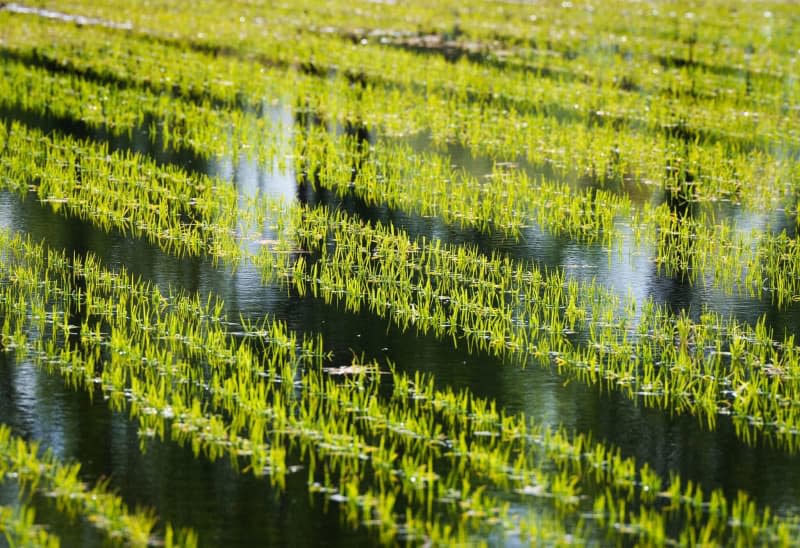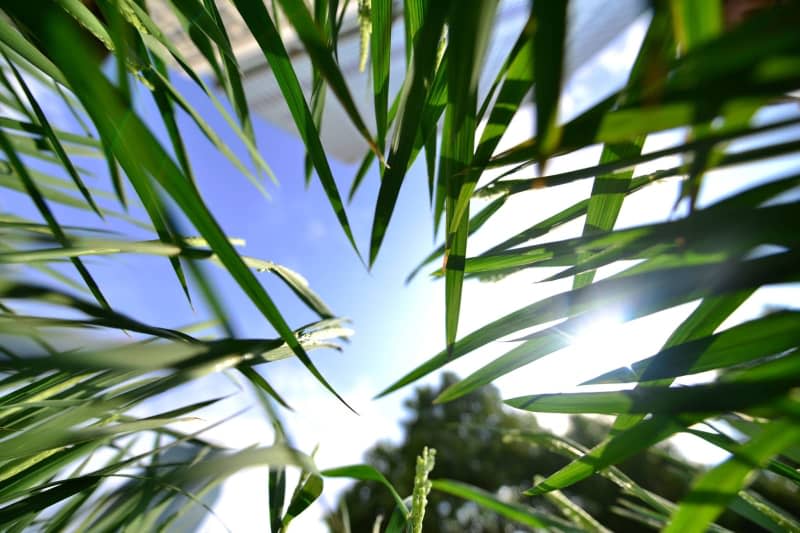Study: Rice harvests and quality are worsening under climate change

Global warming is leading to smaller yields and poorer quality in rice crops, according to new research that suggests rice harvests could decrease by up to 35% and quality by up to 85% compared to plants in 1990s climate conditions.
A study by the Japanese organisation for agriculture and food research in Tsukuba analysing five Japanese rice varieties predicts strong global warming accelerates the life cycle of rice plants considerably and has a negative impact on grain yield and quality.
The research, published in the journal Proceedings of the National Academy of Sciences (PNAS), suggests that additional high CO2 concentration further worsened production compared to the high temperature alone.
In order to test how rice plants and the resulting rice harvest are affected by climate change, the researchers used an artificial growth chamber where environmental fluctuations were simulated with the help of high-performance LED lamps.
The growth chamber was fed with meteorological data from several years at different locations. Future climate scenarios altered by global warming were simulated for a region with a temperate climate such as Tsukuba in Japan.
This artificial environment could help to test the climate impact on other rice plants and develop varieties that are better able to cope with future environmental conditions, as well as help reduce methane production in rice cultivation, the researchers write.


